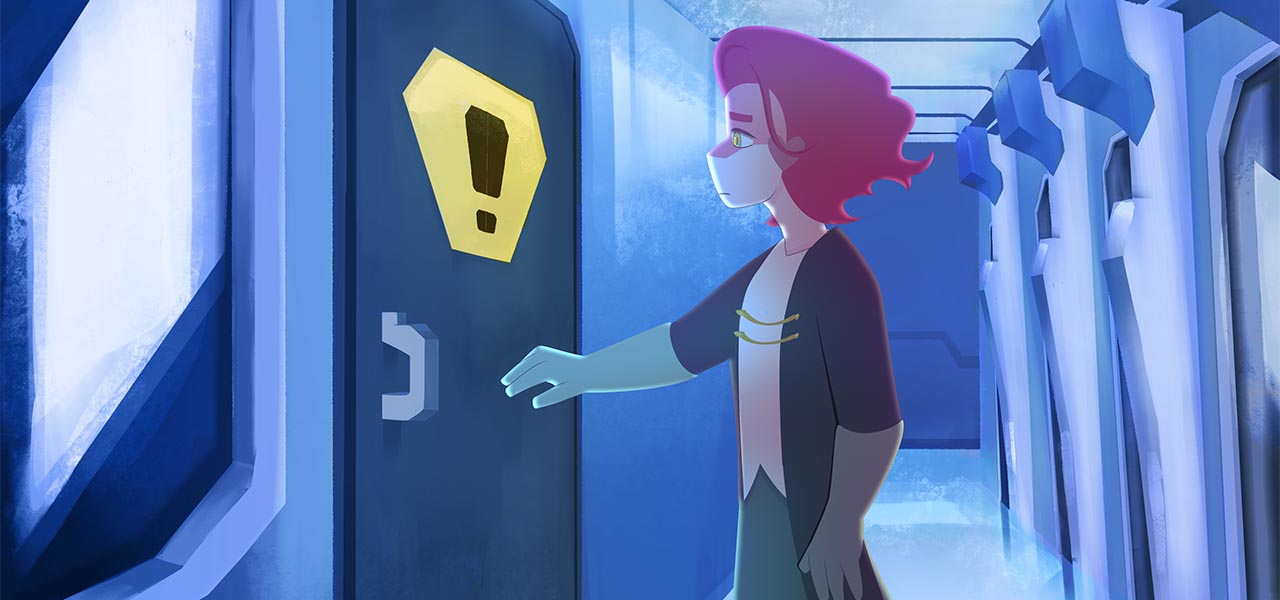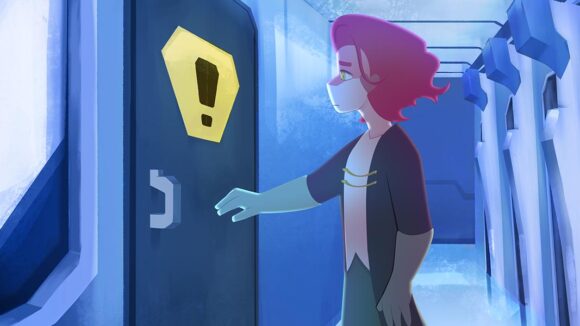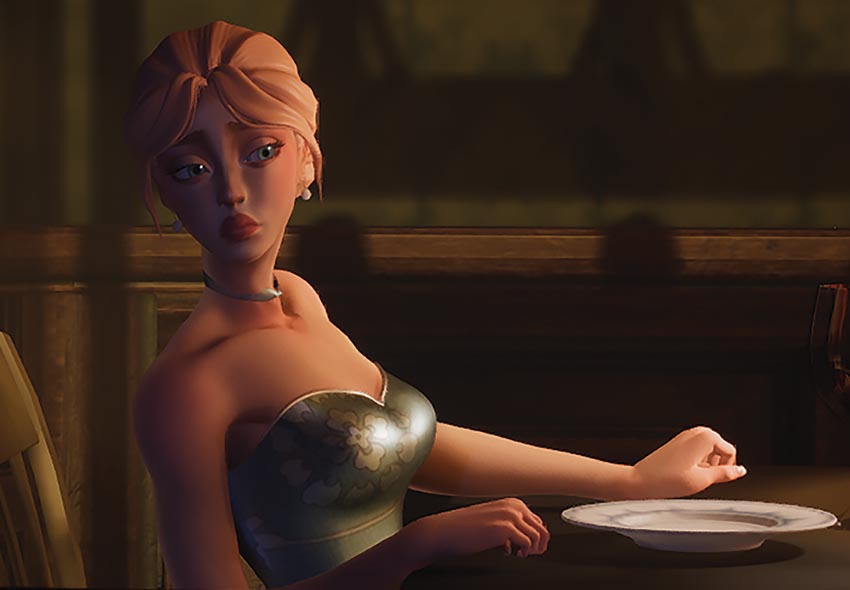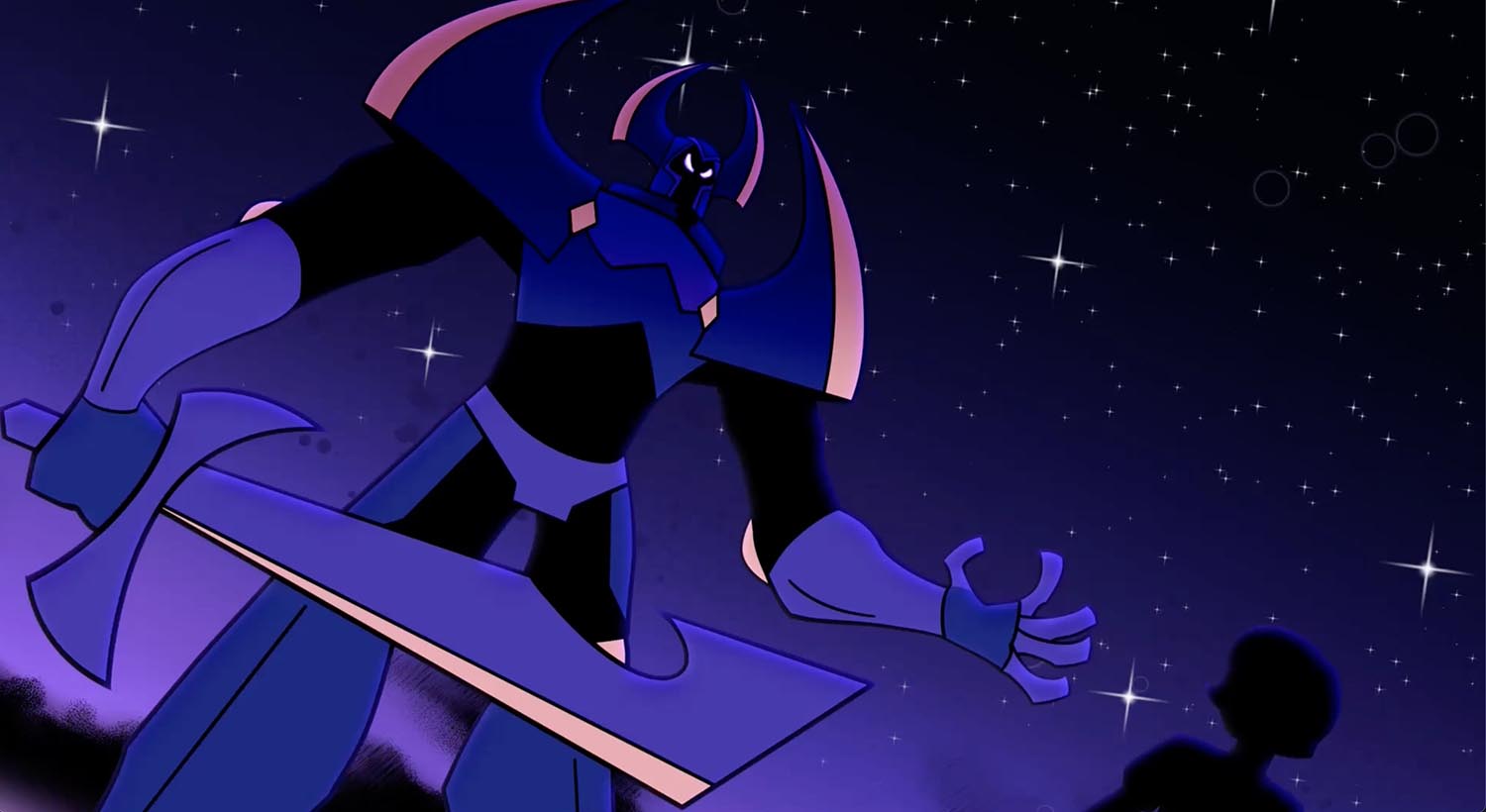

Learning From The Best: Chapman University Animation Students Get Mentored By Giants In The Field
Dani Sharkey knew she wanted to be a writer and animation director from an early age. She had long admired and been influenced by the work of Emmy winner Lauren Faust, the writer, director and showrunner of such projects as My Little Pony, Powerpuff Girls, Wander Over Yonder, and Foster’s Home for Imaginary Friends.
When Sharkey, a 2024 graduate from the animation program at Chapman University’s Dodge College of Film and Media Arts, found out that Faust was going to be working one-on-one with her for an hour each week on her senior film, it was a bit like a dream coming true.
“Personally, as an advocate for female-oriented TV animation, I realized this mentorship opportunity would lead to a one-of-a-kind educational experience,” Sharkey said. “I almost couldn’t believe it when we were told that Lauren Faust would be teaching and advising at Chapman.”
But the opportunity to work with animation greats such as Faust is exactly what all Animation and Visual Effects (AVE) majors have at Dodge.

The undergraduate department, led by industry veteran Ruth Daly (The Iron Giant, Alvin and the Chipmunks), boasts not only Faust, but two-time Oscar nominee John Musker (Moana, The Little Mermaid) and Oscar-winning director Brenda Chapman (Brave, The Prince of Egypt) who meet with students every week as Pankey Distinguished Artist Program mentors, guiding them through their senior thesis projects.
Expert faculty and small classes within this world-renowned film school further enhance the experience of the 130 students currently enrolled at Chapman in three areas of emphasis: 2d animation, 3d animation, and visual effects, but it’s the mentors who help differentiate the program from that of its competitors.
“What really sets us apart is one-on-one tutoring over an extended period of time on a personal project with a legendary director who students may only have dreamed of meeting,” Daly told Cartoon Brew. “Lauren, John, and Brenda bring the highest caliber of instruction we could ever hope to offer our students.”
Parker Scarborough, another 2024 animation graduate, agreed. “I left the mentorship feeling extremely enthusiastic about the value and importance of having my work critiqued. I think receiving notes can be nerve-racking for students, but it was a super enjoyable experience getting feedback from Lauren and John,” she said. “We would work through obstacles together like we were solving a puzzle, and I’d always leave the meetings with renewed motivation to keep drawing and improving.”
“The ability to see my work through the eyes of someone with such a different perspective has been incredibly valuable,” added newly graduated Brycen Sochiratna. “I feel much more comfortable talking to leaders and authorities in the industry about my ideas and art as well as feeling that I have a much more human connection with them.”
Practical Experience
In their freshman year, students study visual storytelling, and by the time they’re sophomores, they’re crafting their first short films. One of the many things they learn when working with the mentors is that clarity and efficiency are key, especially when shaping their short senior thesis films — a format that doesn’t allow for a lot of time to tell their stories.
Faust’s advice to students: “What is your focus? What are you trying to say? What do you want your audience to feel? You may need to significantly simplify your plot and message so you can highlight humor, or, if you want to say something big with your character’s journey, you must find ways to communicate those ideas quickly, but with proper impact,” she told Cartoon Brew. “Once you prioritize your focus, you can communicate it using the visual language of film, as well as universally understood ideas and concepts, to guide an audience to the reaction you’re seeking from them — whether that is to laugh or cry, to connect and understand, or perceive something in a whole new way.”

Many of the thesis students work in teams on their projects and that collaboration provides valuable practical experience for their artistic journey in the industry. Brenda Chapman credits that kind of interaction for her own success.
“Having been in a role as an artist working in the trenches observing and taking direction from my supervisors and directors, I learned how to become a director and a leader. … All filmmaking is collaboration, but animation is especially so. It can be quite fulfilling for artists when helping another filmmaker create their vision — and it can be gratifying to a filmmaker when a team helps them create their vision.”
Professional Preparation
Through hour-long weekly meetings with the mentors over a period of 10 weeks, students are prepared for the experience of receiving and implementing critiques in the real world after graduation. Updated reels are expected to be delivered prior to each session and notes are given through draw-overs and sketches; they’re even acted out.
“When you first start animating, you’re just happy that your characters are moving convincingly,” said Assistant Professor Dave Kuhn, “but the level of performance that these mentors are challenging the students to achieve is more about what the character is feeling at that moment in the story and how that can inform unique acting choices instead of relying on stock gestures or expressions.”

Master Classes
One doesn’t have to be a thesis student, however, to learn from these animation veterans. They also teach a variety of classes open to all Chapman Animation and Visual Effects students from Musker’s Caricature class to Faust’s Pitching and Showrunning seminar.
Said assistant professor John Perez: “As a faculty advisor sitting in on these, I feel like I’m auditing a master class.”
For more information about Chapman’s Animation and Visual Effects program, please visit the Dodge College website.
Pictured at top: Forgive and Regret by Claudia Celio and Hunter Frye (mentored by Brenda Chapman and Jan Pinkava).

